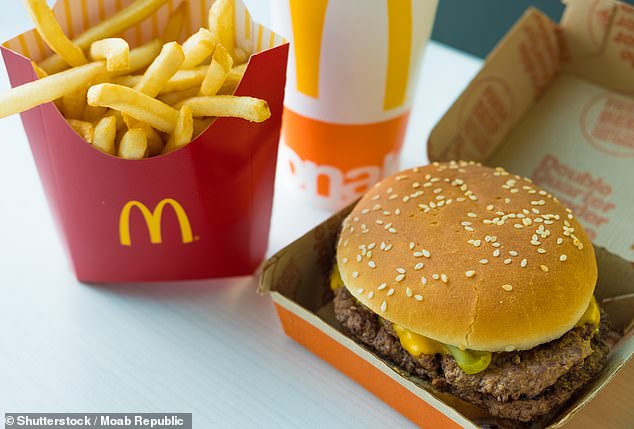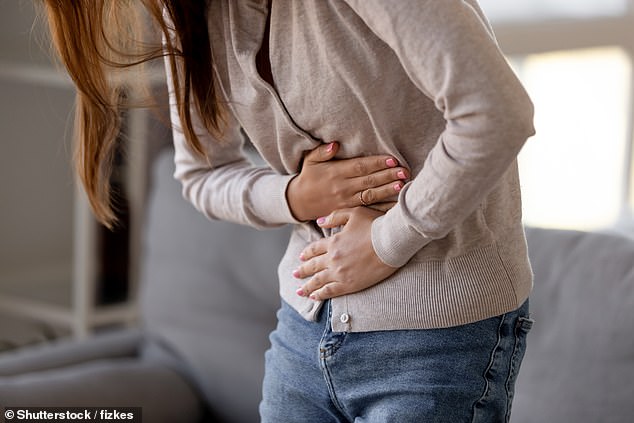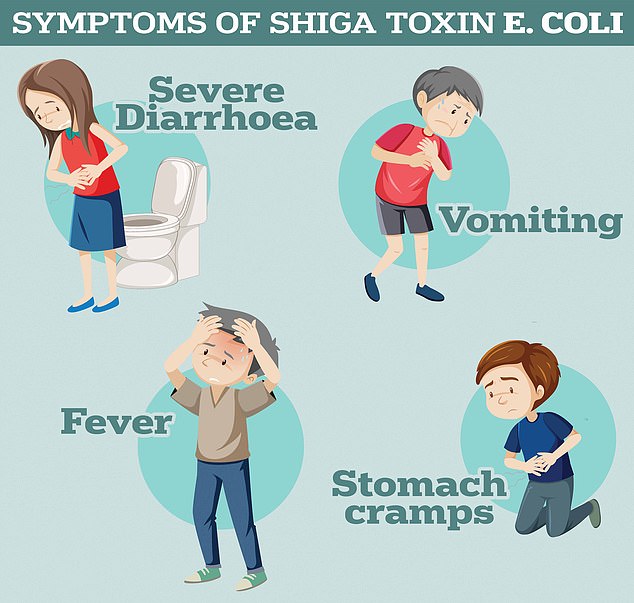Anyone who has consumed a McDonald’s Quarter Pounder burger in recent weeks is urged to remain alert if they notice changes in their body.
A major outbreak of E. coli bacteria has been linked to about 2,700 fast food stores in the Mountain West states, killing one and hospitalizing 10 others.
The CDC says anyone who has eaten a quarter pounder (which 100,000 Americans consume per day) and feels unwell should contact their doctor immediately.
And food safety experts told DailyMail.com that those who ate at McDonald’s should remain alert for two to eight days after being exposed, as it can take about a week for symptoms to appear.
E Coli kills up to a fifth of the people it infects, so the advice is not to wait and seek help immediately. So far, 49 Americans have been confirmed to have the illness after eating at McDonald’s, but that is likely a much lower count than expected, the CDC says.
Symptoms of Shiga toxin-producing E. coli include severe diarrhea and vomiting.

The CDC announced that 49 people in 10 states became ill with E coli after eating at McDonald’s. Most ate a quarter pounder (pictured)
The CDC warned consumers: “If you have severe symptoms of E. coli infection after eating a Quarter Pounder burger at McDonald’s, seek medical attention and tell your provider what you ate.”
While most patients recover on their own, those with severe illness may have suffered bloody diarrhea, vomiting, stomach cramps, and dehydration.
The agency also recommends seeking help for diarrhea that lasts at least three days without improvement or vomiting so severe that it is difficult to keep fluids down.
Mitzi Baum, food safety expert and nonprofit executive director. Stop foodborne illnessestold DailyMail.com: ‘If you have recently eaten a quarter pounder and are showing the symptoms described above, please seek medical attention immediately. For your illness to be treated properly, you must be tested for E. coli.
“Tell your medical provider that you believe you are part of the current E. coli outbreak associated with McDonald’s Quarter Pounders and that you want to be tested for E. coli.”
Stool, blood, and urine tests can detect the bacteria.
He also noted that despite the outbreak, “consumers do not need to avoid the restaurant completely,” as affected items have been removed from restaurants in affected states.
The outbreak spread to 10 states: Colorado, Nebraska, Kansas, Missouri, Iowa, Wisconsin, Wyoming, Montana, Utah and Oregon.
This means that customers who live in those states are at higher risk of infection if they ate a quarter pounder between September 27 and October 11.
Ms Baum said young children and the elderly should be especially vigilant as they are more likely to have compromised immune systems, making them more vulnerable to serious infections.
She said: ‘They can develop a serious complication of E. coli poisoning called haemolytic uremia syndrome (HUS). If it occurs, it develops on average seven days after the first symptoms, when the diarrhea is improving.’
HUS is the complication that hospitalized the unidentified child mentioned in the CDC report. It affects between 200 and 300 Americans per year and kills less than one in 20 of them.

Severe E. coli infections can cause bloody diarrhea, painful stomach cramps, and kidney damage.
Symptoms of HUS include fever, abdominal pain, pale skin, fatigue, irritability, bruising, and bleeding from the nose and mouth, Baum said.
There is no specific treatment for E coli, so most patients are expected to rest and drink plenty of fluids to avoid dehydration, Baum said.
The CDC recommends that severe E. coli be treated with intravenous fluids, blood transfusions, and kidney dialysis if patients have the complication of hemolytic uremic syndrome, which damages the kidneys.
Ms Baum said: “Antibiotics should not be used to treat this infection. There is no evidence that antibiotic treatment is helpful and taking antibiotics may increase the risk of HUS.
The Mayo Clinic recommends avoiding antidiarrheal medications, as they slow down the digestive system and prevent the body from eliminating toxins, which could keep you sick longer.

